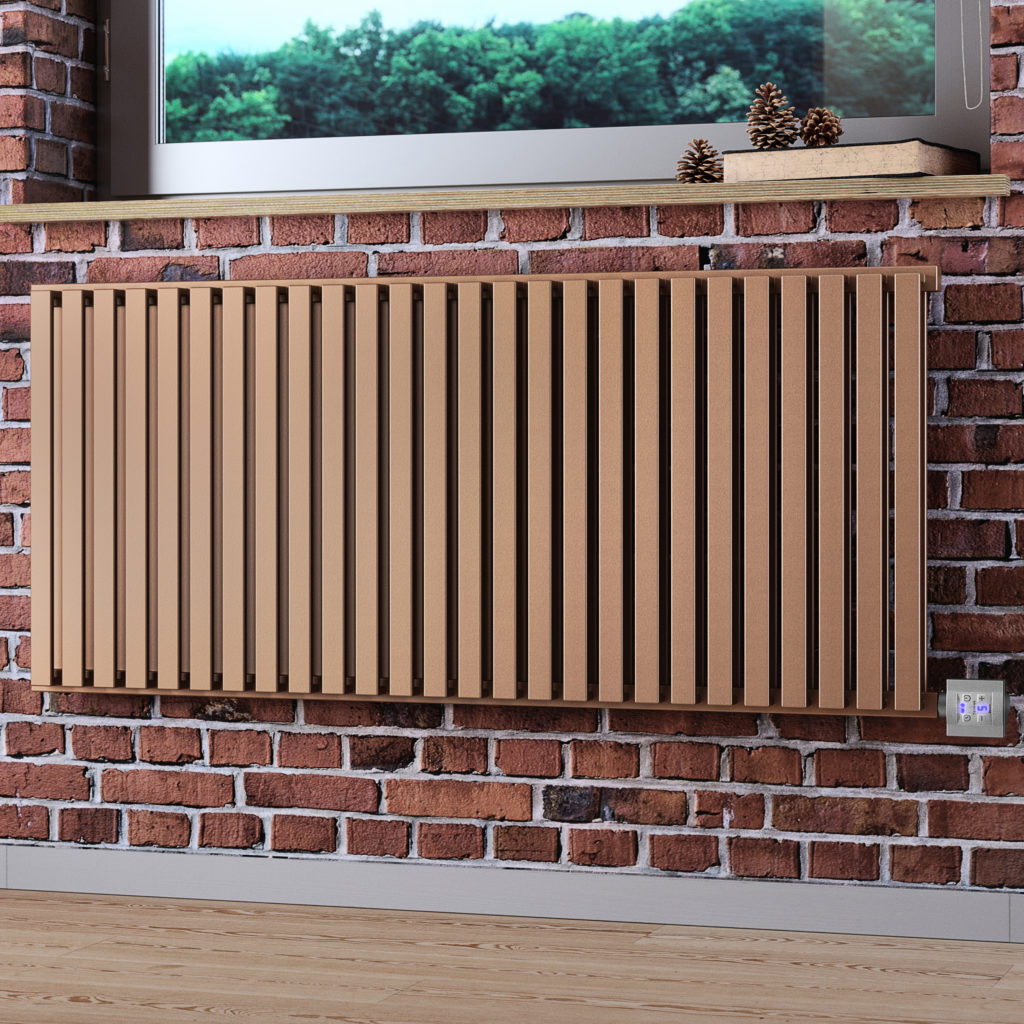Are Free Standing Electric Radiators Expensive to Run? – Cost Breakdown
How Much Do Electric Radiators Cost to Run Now?
With energy prices rising exponentially, many homeowners are looking for affordable ways to heat their homes. Electric radiators can provide an energy-efficient heating solution, but how much do they actually cost to run? This detailed guide examines the key factors that determine electric radiator running costs, along with tips to reduce your spending.
How Do Electric Radiators Work?
Before estimating running costs, it helps to understand how electric radiators work. They contain electric heating elements that warm up when switched on, gently heating the surrounding air through natural convection without the need for fans.
Unlike gas central heating systems which heat water before pumping it to radiators, electric models provide instant, localised heat with no delay for warm-up. This direct heating makes them responsive and controllable via manual dials or built-in thermostats.
Modern electric radiators also boast exceptional efficiency – converting virtually 100% of input electricity directly into heating for rooms.

What Factors Impact Electric Radiator Running Costs?
Several key factors contribute to determining the actual running costs of an electric radiator system:
Electricity Tariff Rates
In the UK, domestic electricity prices per kWh are currently around 28p – although regional variations apply. However, this unit rate can vary greatly depending on your chosen energy supplier and tariff type. Choosing a competitive supplier alongside a flexible tariff can significantly reduce your heating bills.
Heater Wattage Ratings
Electric radiators have a wide range of heat output ratings, typically starting from 500W for a small bathroom model up to 3000W for larger rooms. In general, the higher the radiator wattage, the faster it can heat a room. But higher outputs also consume more electricity when in use. Carefully choosing the correct heater wattages based on room dimensions is crucial for optimal energy efficiency.
Daily Usage Time
The number of hours electric radiators need to be switched on per day also impacts energy use significantly. The longer they run each day, the higher the consumption and running costs. Using programmable thermostats or timers to limit operation precisely to when heat is actually needed helps minimise waste.
Location Efficiency
Situating radiators under windows or on external walls increases natural heat loss to the outside. Carefully considering emitter positions to maximise efficiency of warmth circulation within rooms is another vital measure to retain heat.
How to Accurately Estimate Running Costs
Taking into account the key usage variables, we can calculate accurate costs using this simple electric heater running cost formula:
Cost = Power (Watts) x Hours Used Per Day x Electricity Price (p/kWh) ÷ 1000
So for example, a 2000 Watt electric radiator used for an average of 6 hours per day on a standard tariff of 28p/kWh would cost:
2000 x 6 x £0.28 ÷ 1000 = £3.36
Over the course of a month, this would amount to approx £100 central heating running cost.
Simply input your own heater sizes, time settings and energy rates to determine personalised costs.
5 Tips to Reduce Electric Radiator Running Costs
Here are 5 simple ways to cut your electric radiator costs while maintaining a warm home:
- Install Electronic Thermostats – Precisely setting an optimal room temperature (typically around 20°C) avoids overheating and wasting heat. Smart WiFi-connected models add convenience and automation.
- Use Timers and Heating Controls – Program radiator schedules for only when warmth is truly needed tailored to lifestyle, ensuring minimal energy waste.
- Zone Off Unused Rooms – Closing doors to limit heating to occupied areas operating at lower temperatures provides quick savings.
- Frequently Bleed Radiators – Removing built-up pockets of trapped air improves water circulation efficiency within wall mounted styles.
- Improve Home Insulation – Prioritise upgrades such as double glazing, cavity wall and loft insulation to drastically reduce unwanted heat loss from rooms – retaining warmth for longer periods.
Making a few small timed usage optimisations around the home adds up to big annual savings on energy bills.
Available Heating & Energy Grants
With retail electricity prices rising over 54% this winter compared to 2021, many households are struggling badly to afford adequate heating. Thankfully, various government and energy industry schemes are available offering financial support:
- The Winter Fuel Payment provides tax-free annual funds up to £600 towards heating costs for all pensioner households over State Pension age.
- The Warm Home Discount Scheme offers a one-off £150 rebate on electricity bills during winter for certain low income or vulnerable households.
- The energy supplier obligation ECO Scheme offers grants and discounts on insulation measures like cavity wall or loft insulation – drastically cutting home heat losses.
- Local council schemes assist vulnerable residents in fuel poverty such as the disabled, elderly or financially deprived. Support ranges from discounts on new heating systems to free draught proofing and insulation fitting.
Seeking any home energy support available ensures adequate affordable warmth for all residents this winter. Regularly comparing electricity suppliers for the cheapest tariffs cuts through goings even further year-round.
FAQs on Electric Radiator Running Costs
How do electric radiators compare to gas central heating systems on annual costs?
Well designed electric heating systems can certainly compete with gas nowadays. Avoiding significant oversizing of emitter capacity is key for efficiency. With appropriately sized radiators alongside modern electronic thermostatic control, good insulation standards and informed usage, electric Vs gas running costs are now comparable for many homes.
Should I switch radiators off completely in unused rooms to save energy?
Turning off radiators in unoccupied rooms definitely saves some power short-term. However in cooler seasons, most heat loss actually occurs when reheating cold spaces back up to temperature. Using electronic thermostats to maintain a steady, low background level – typically under 10°C – keeps rooms warmer while using minimal energy in most UK homes.
With skyrocketing energy prices, isn’t electric heating now far too expensive?
While household fuels are undoubtedly costlier than previous times, electric heating can remain affordable for modern properties. By taking advantage of insulation grants, carefully zoning usage through smart thermostatic controls and shopping around annually for the cheapest electricity supplier tariffs, electric systems are still cost-effective all year round.
Key Running Cost Takeaways
- Electric radiator heating bills depend on wattage, usage times and tariff rates
- Correctly sizing radiators for dimensions of rooms is vital for efficiency
- Smart electronic thermostats optimise heating schedules, preventing waste
- Available grants assist homeowners struggling with higher energy costs
- Regular comparisons between energy suppliers reduce tariffs significantly
- Improving insulation slashes unnecessary heat losses from rooms
With some basic optimisations around sizing, insulation and control settings alongside consumer vigilance to reduce supply costs, electric heating provides a versatile, permanent way to keep British homes heated affordably. Careful radiator selection alongside smart heating management rewards households with maximised warmth for their budget through colder months.



